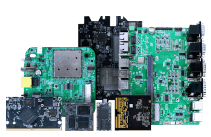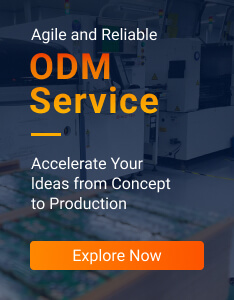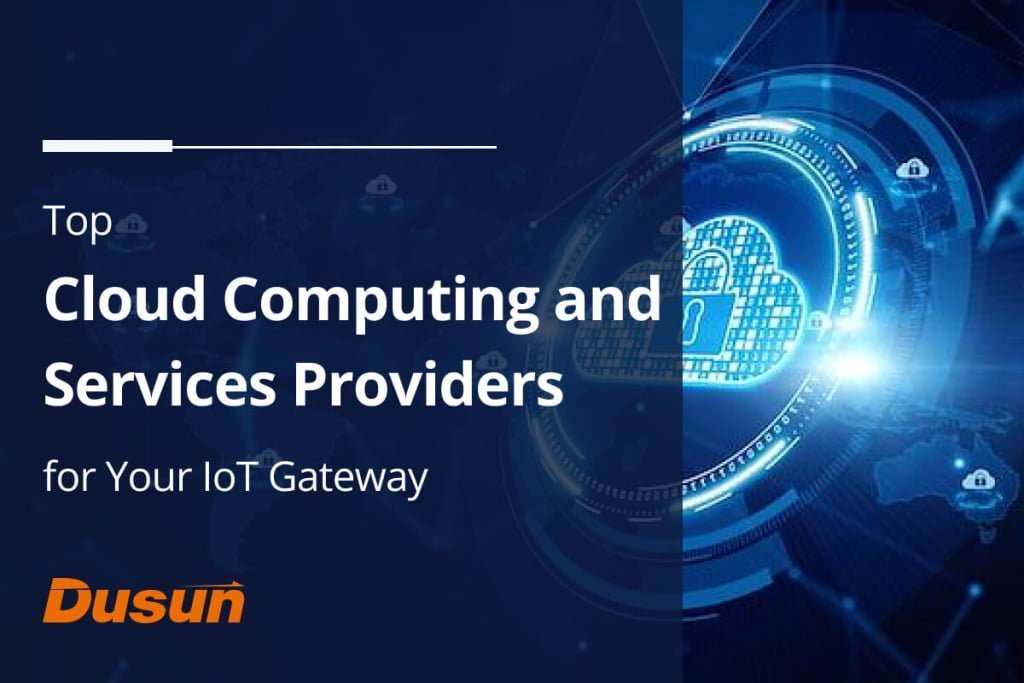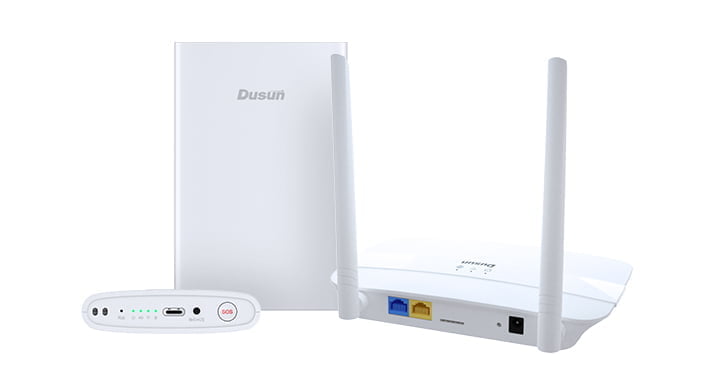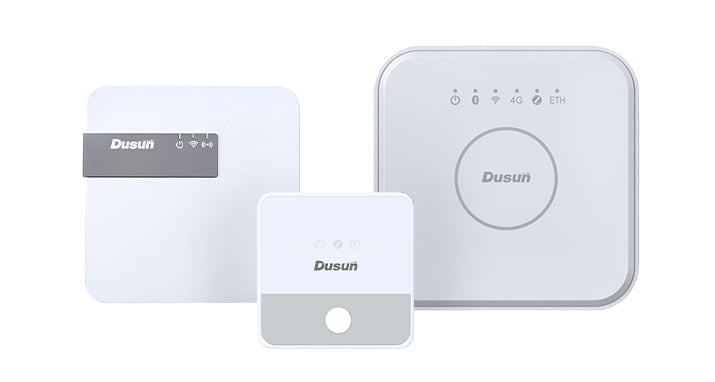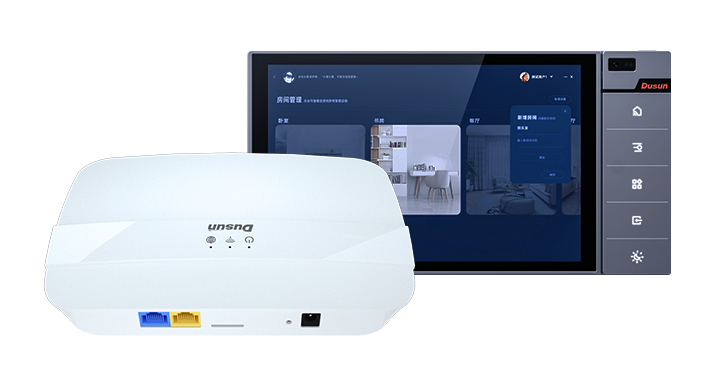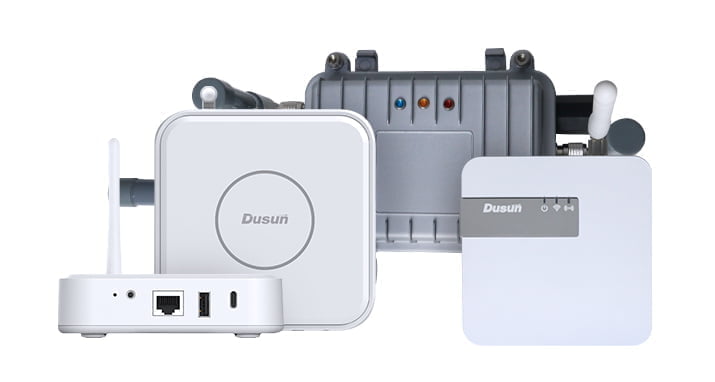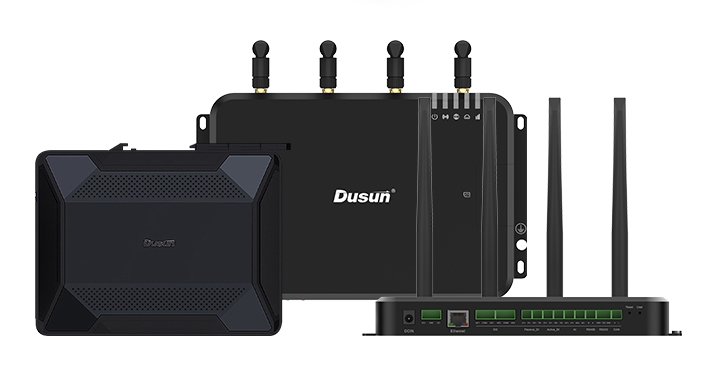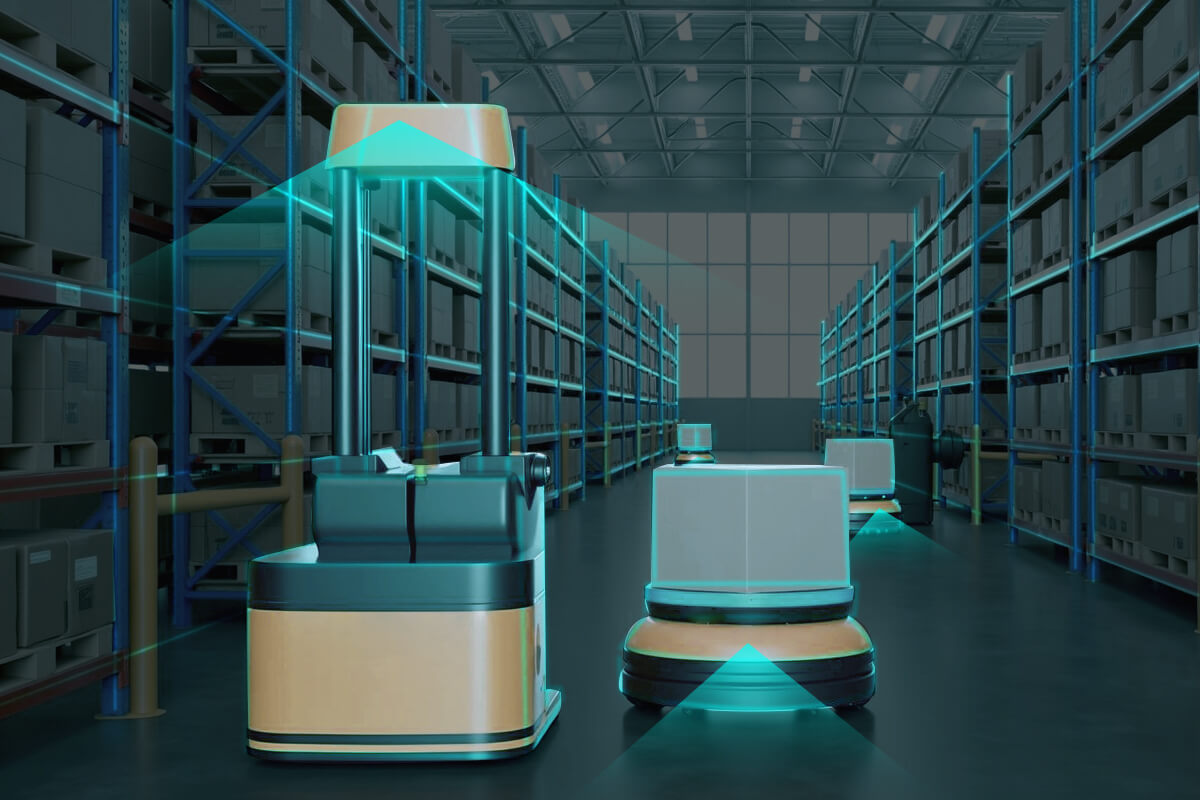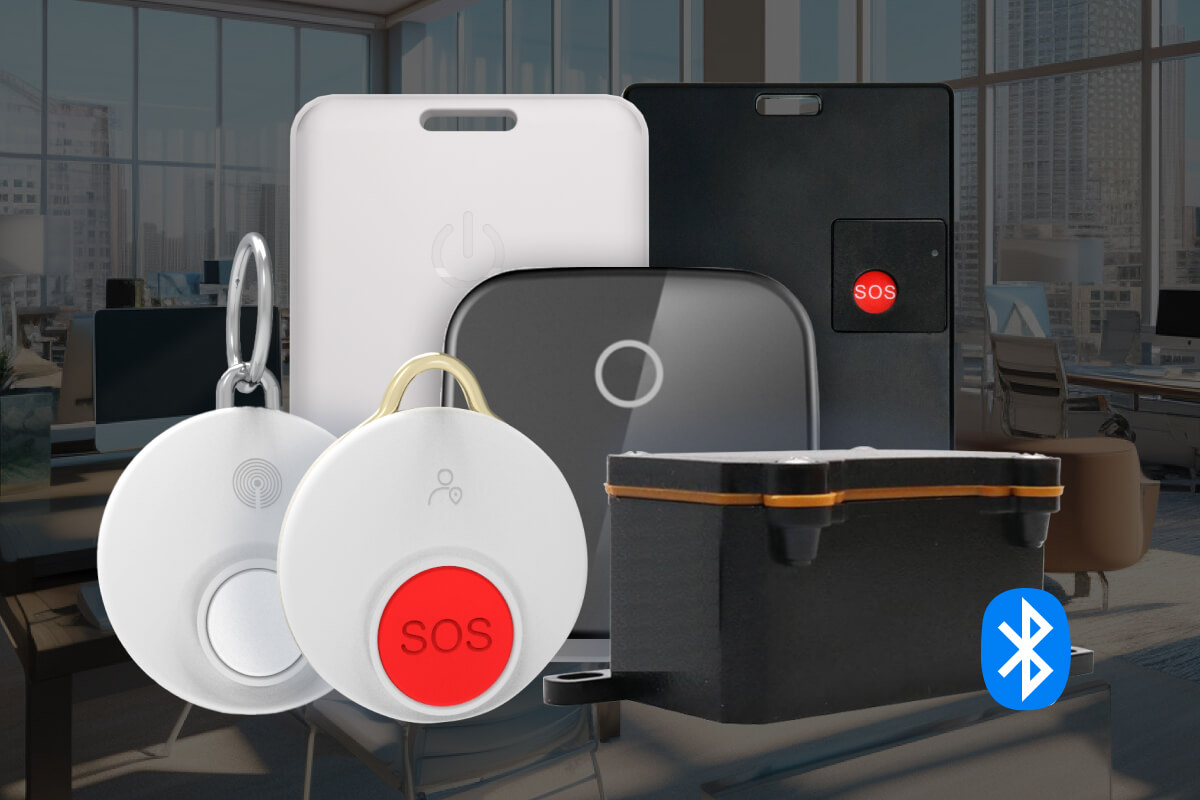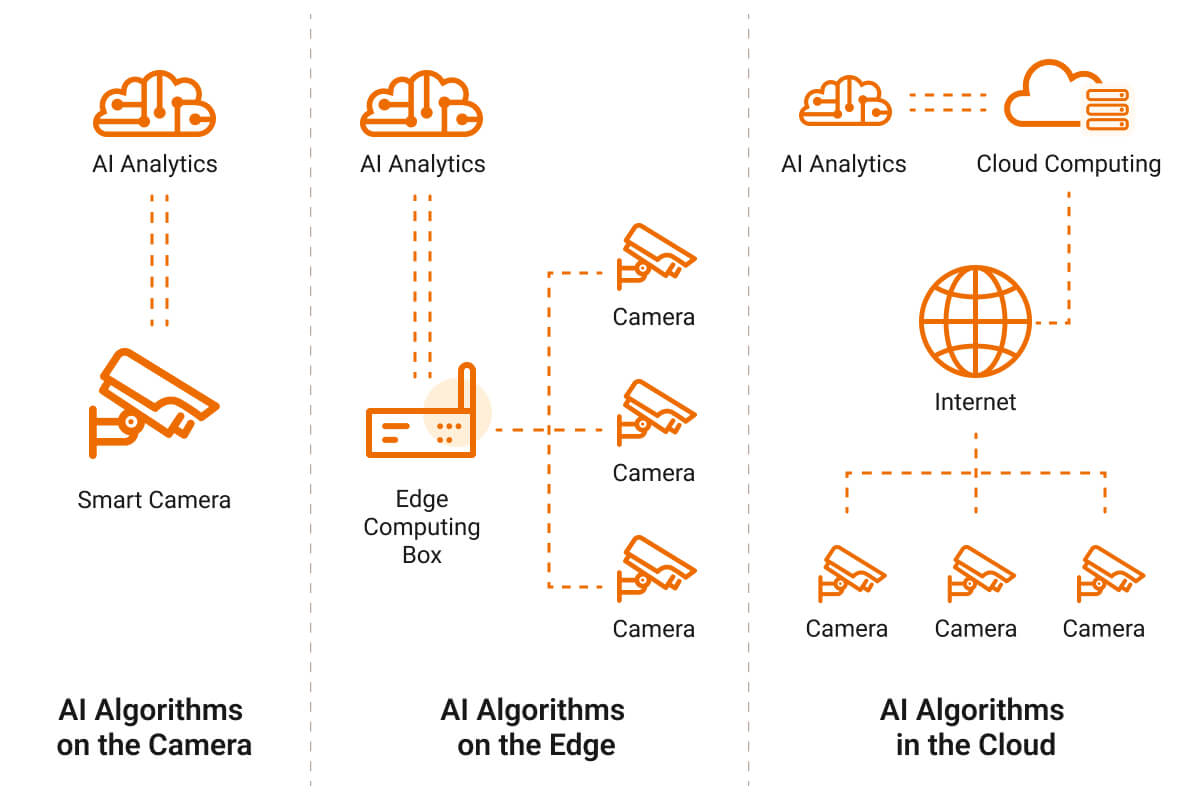IoT Gateway is essential for building an IoT ecosystem that connects devices, sensors, and cloud applications. As IoT devices continue to increase, it has become very important to have a reliable cloud computing service that can securely manage and store data from these devices.
This is where top cloud computing and services providers come into play. They offer a variety of solutions for IoT Gateway development, such as cloud storage, data analytics, and security services. This article will explore some of the top cloud computing and services providers for IoT Gateway development and discuss why cloud computing is an indispensable part of gateway development.
What are the top cloud computing and services providers for IoT gateway development?
Let’s now discuss the top cloud computing and service providers for IoT Gateway development.
Amazon Web Services (AWS)
Amazon Web Services (AWS) is a leading cloud computing service provider that offers a wide range of solutions for IoT Gateway development. One of its unique features is the AWS edge computing service, which allows developers to process data closer to where it is generated, reducing latency and improving overall performance.
In addition, there’s the AWS IoT Gateway, a software-based gateway that allows devices to connect securely to the AWS cloud. It provides a scalable and cost-effective way to manage and analyze data from IoT devices. The service also offers a range of hardware solutions, such as the AWS IoT button, which allows developers to prototype and test IoT applications quickly.
With AWS edge gateway, developers can easily integrate IoT devices with the AWS cloud and build robust applications that leverage the full potential of the cloud. Additionally, AWS provides powerful security features that help protect data and devices from cyber threats.
Microsoft Azure
Microsoft Azure offers a wide range of services and tools, including virtual machines, storage, networking, databases, and analytics, as well as solutions for artificial intelligence, the Internet of Things, and DevOps. Users can select the services they need and pay for them on a pay-as-you-go basis, providing flexibility and cost-effectiveness.
One of the key benefits of Azure is its global reach, with data centers located in more than 60 regions worldwide. This allows organizations to deploy their applications and services closer to their users, reducing latency and improving performance. Azure offers advanced security and compliance features, including data encryption, identity, access management, and regulatory compliance certifications.
Furthermore, Azure also provides developers with a wide range of tools and frameworks, including support for multiple programming languages, open-source development tools, and a wide range of integrated development environments. Additionally, Azure supports a range of deployment models, including virtual machines, containers, and serverless computing.
IBM Watson IoT
IoT entails collecting and exchanging data by billions of physical devices globally that are now connected to the internet.
Businesses can get a clearer picture of every aspect of their operations and create better business models by combining IoT data with IBM Cloud technology.
This technology provides a user-friendly interface that lets you easily add and manage devices, control access to your IoT device and keep records of your consumption.
In addition, the IBM Cloud technology is a fully managed and cloud-hosted service that makes it easy to get the best out of your IoT devices. Features of this service include Registration of the device, connectivity, control, quick viewing, and IoT data storage.
Suppose you want to develop your applications, mobile IoT apps, and visualization dashboards. In that case, you can connect to the IBM Cloud’s Watson IoT Platform and set up and manage your devices.
Furthermore, essential tools for building your IoT apps, such as Cognitive APIs, Blockchain, and Weather Company data, are available on the platform. You can enhance the user experience using a natural speech interface or image recognition.
Oracle IoT
This technology is a platform as a service provider that concentrates on managing manufacturing and logistics workloads. They seek to enable faster movement of your business products to market.
Oracle gives IoT data analysis and endpoint data management in real-time to enable businesses to make the right decisions. Another excellent advantage of using the Oracle IoT cloud platform is device visualization for east device data analysis.
The Oracle IoT pricing is calculated per device. A set number of messages exist per device, per month, including an extra cost if you exceed this number.
Google Cloud Platform
From August 15, 2023, the Google Cloud IoT service will no longer be available.
ThingsBoard
ThingsBoard is an open-source IoT platform that entails data collection, processing, visualization, and device management. It allows for device connectivity through industry standard protocols, including CoAP, HTTP, and MQTT. In addition, ThingsBoard supports both on-premises and cloud deployments and combines scalability, fault tolerance, and performance to safeguard your data.
Chirpstack
Chirpstack is an open-source LoRaWAN Network Server applied in setting up LoRaWAN networks. This technology offers a web interface for LoRaWAN gateways, devices, and tenant management and integration with the major cloud providers, databases, and services frequently used for handling device data. In addition, Chirpstack provides a gRPC-based API that can be used to integrate or extend ChirpStack.
The Things Stack
The Things Stack is a LoRaWAN Network Server which is the crucial component for any LoRaWAN solution. It is used by many companies globally and securely manages applications, end devices, and gateways.
The Things Network
The Things Network is a global integrative IoT ecosystem that creates networks, solutions, and devices using LoRaWAN.
Helium
Helium IoT Cloud is a cloud-based platform for managing Internet of Things (IoT) devices. The platform is built on top of the Helium Network, a decentralized wireless network that uses blockchain technology to provide secure and reliable connectivity for IoT devices.
SmartThings
SmartThings is a cloud-based platform for managing Internet of Things (IoT) devices. It was initially created by a company called SmartThings, which Samsung acquired in 2014. The platform lets users connect easily and control their smart home devices through a single app.
HomeKit
Homekit is an IoT cloud platform developed by Apple that allows users to easily connect, control, and automate smart home devices using their iPhone, iPad, or other Apple devices. With HomeKit, users can control many compatible devices, including smart lights, thermostats, and door locks.
Factors to consider when choosing a cloud provider for IoT projects
Now check out the factors you should consider before choosing a cloud provider for your IoT project.
Scalability
Over time, it’s almost certain that your IoT project will grow. While this technology expands and becomes more widely used, nearly every business will likely end up using more IoT devices and functions across many use cases.
Your platform must be ready for times like this. Go for a platform that can effortlessly scale as the project advances and is suitable for all IoT projects: ranging from a handful of devices in one area to thousands spread across multiple regions.
The best IoT platforms should be capable of scaling through a range of diverse deployment models, including:
- Within a private cloud
- Within a public cloud
- In your business environment
Security and privacy
Security is another primary concern for IoT networks. There has been an increase in the rate at which IoT devices are hijacked, and about 33% of the infected devices are now part of the IoT. You must go for an IoT platform that prioritizes security.
Suppose you take the security of your IoT infrastructure with levity. In that case, you’re only putting it at risk of cyberattacks, which can lead to downtime, loss of essential data, and major damage to your IoT infrastructure’s reputation. In addition, many companies have to follow strict prerequisites when data ownership and security are involved, which means that you can face legal penalties if your data breaches.
Securing your business environment is no longer enough in our increasingly remote connected world; you must ensure your devices are safe anywhere. Your IoT platform should be able to integrate with common cloud infrastructures such as Amazon AWS and Microsoft Azure.
Cost and pricing
Cost is an essential factor for any business. However, one cannot make a direct comparison among different providers when it comes to the cloud. You need to be fully aware of the application requirements and check the cost of the services together before making a choice.
You shouldn’t just check the only hosting charges. You should also check the overall cost of using the service. This measure is so because it’s not advisable to jump from one cloud provider to another every time because of one feature or service cost. As there are different service providers, so are their methods of billing differently. You can get multiple plans from each provider, like reserved instances, dedicated resources, pay-as-you-go, etc.
To buttress my point, if someone wants to set up a virtual machine using the pay-as-you-go plan, then they have to pay per second, and as long as the virtual machine is not in use, there won’t be any charges. On the other hand, one has to pay a set amount for reserved and dedicated resources but can obtain discounts for the reservation of resources.
Summarily, businesses must seek long-term partnerships with cloud providers. Business communications are essential, and one must get the best out of its investment.
The hardware solution (IoT cloud gateway) for IoT solution vendors
Our products serve IoT Application developers to successfully set up an IoT app using a fully-fledged public cloud platform, including The Things Network, AWS IoT Core for LoRaWAN, ThingsBoard, Things Stack, Google IoT core, Home kit, Smartthings, and Helium.
Our Edge Computing Gateway is also qualified by platforms like AWS, Azure, etc. The essence is that you, as a developer, can directly use the services offered by these platforms without needing to do the development. Therefore, accelerating IoT application development.
Explore: AWS LoRaWAN gateway
Later on, after the simple setup, the data can be moved to those cloud platforms, making it more straightforward for you to build scalable IoT apps that obtain, process, analyze and work on data without having to manage any infrastructure.
Furthermore, our Gateway Hardware powered by Dusun connects various sensors/devices through Zigbee 3.0, Bluetooth, Wi-Fi, Z-WAVE, Sub-G, and Modbus. It also has a 232/485/Modbus/DI/AI interface, and various protocols are available.
Final thoughts
Choosing a suitable cloud computing and services provider is crucial for the success of your IoT project. The top providers in the market offer a wide range of features and functionalities to support IoT applications’ development, deployment, and management.
Ultimately, the choice of cloud provider will depend on your IoT gateway project’s specific needs and requirements, as well as your budget and technical expertise. It is essential to carefully evaluate and compare different providers to ensure that you select the best option for your business.
In the meantime, do well to contact us if you need hardware for your IoT project.

